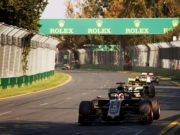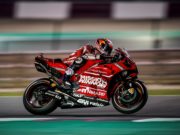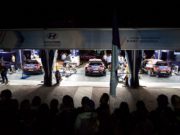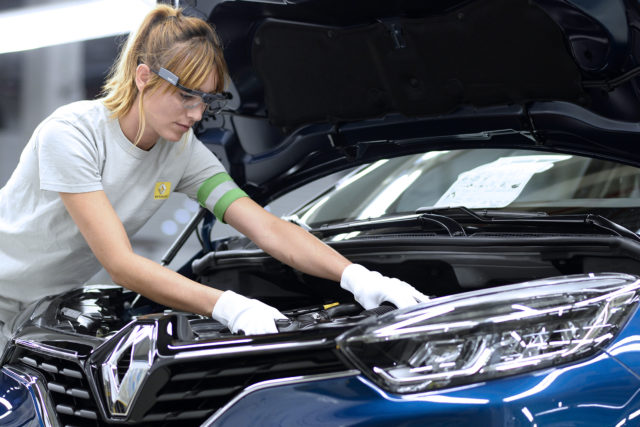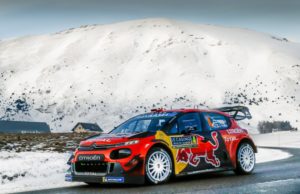The automotive industry is reshaping by the mainstreaming of electric vehicles, the advent of autonomous, connected vehicles, personalisation and other trends. To keep pace with this revolution, the industry needs to adapt to ensure reliable, fully traceable production. Renault is digitising its production system to support operators, build connected, personalised vehicles, and make plants more customer-focused. The goal is twofold: to ensure the quality of its vehicles and to maintain the competitive advantage of its production system.
Renault’s plant of the future focused on customers
Customers today are looking for connected vehicles that reflect who they are. Renault’s production system is adapting to these needs by rolling out vehicles that are 100 percent personalised. Each vehicle is unique.
The traceability of each part
Each part is traceable, making it possible to track each order every step of the way. As soon as a customer orders a new vehicle, the raw materials are prepared, the suppliers informed and the logistic flows put in place. By fully synchronising all stages of production, the plant is able to respect lead times, from suppliers to end customers.
Sites use QR codes and RFID tags for parts, along with a database, to manage the quality of each part throughout the process.
For example, the Valladolid plant (in north-west Spain) uses active RFID tags to geolocate vehicles. That enables real-time identification of vehicles ready for delivery, allowing notification of customers when their vehicles are ready.
A controlled process
With the “right first time” approach, operators treat each vehicle built as if it were their own. They know that everything they do impacts the quality of the vehicle delivered and are also aware of customer requirements.
To help them, team leaders organise frontline events and set up demonstration areas in the shop. This quality-conscious approach builds awareness in operators, who play a direct role in customer satisfaction.
Finally, lean manufacturing emphasises the creation of added value for customers. Anything that slows production down needlessly is eliminated. Logistics flows are automated, thus ensuring a smooth process and reassure operators.
Full kitting is widely deployed, doing away with lineside stock. Operators no longer need to move from point to point. All the parts corresponding to the assembly film are prepared ahead of time and follow the vehicle along the assembly line.
Renault and Nissan have 36 production sites and 12 logistics sites worldwide. Their manufacturing teams apply the Alliance Production Way (APW) production standards.
Introduced in 2014, this system shares the best practices of both makers, captures synergies and facilitates the deployment of innovations and sharing of investments to upgrade plants.
APW has enabled cross-manufacturing between the two partners. The Micra built at Renault’s Flins plant in France is one example.
 People are the cornerstones of Renault’s plant of the future
People are the cornerstones of Renault’s plant of the future
People lead Industry 4.0
New equipment means people are more agile, more responsive and trained in new technologies.
Renault has deployed health, safety and environment policies at all its plants and is attentive to employee well-being at work. At the Cléon factory in France, for example, some employees wear exoskeletons for easier handling of parts weighing up to 15 kilograms, enhancing their agility and minimising the risk of injury.
Debulking robots also make it easier to handle parts. Because they pick up, replace and empty parts into trays, creating a more seamless process flow. While a long way from replacing people, technology is gradually helping to phase out the hardest tasks.
Autonomous equipment such as collaborative robots, automated guided vehicles (AGVs) and driverless forklifts are bringing to life tomorrow’s perfectly ordered plants.
Lastly, to support this high-tech revolution, managers are updating the way they work through the Trust Management process, which empowers employees and encourages them to demonstrate initiative. It also facilitates teamwork.
Managers create a trusted environment, making people feel free to “tell it like it is” constructively. Anyone can ask for help when they encounter a problem in their work, without worrying about someone criticising them.
Management’s job is to be close to employees to help them develop their skills. Training has been developed for managers and team leadership standards have been introduced, including regular meetings. These standards make it easier to resolve issues as soon as they arise. This training has already been provided at most production sites, with the aim of reaching all managers, from team managers to executives, by the end of 2017.
As a result of this management practice, the Cléon plant in France has seen a sharp improvement in indicators related to absences, safety and employee engagement.
The plant of the future is connected
Digitising plants facilitates production by connecting people, products and processes from orders to delivery. The intention is to accelerate Renault plants’ progress and performance.
The digital transformation
It supports and connects management at all levels. From employees to plants managers, everyone benefits from new technology. The digital technology aims to provide tools based on how things are really done on the job. The tools make work easier while allowing better connection and collaboration. And they are easier to use and more mobile, which in short means more efficient.
For example, all Renault plants will eventually have Wi-Fi and apps that already allow employees to access all the information they need – vacations, site closures, training and more – from their own smartphones.
Tablets have changed the way team – or UET – supervisors work. When it introduced the “connected UET supervisor” concept, the Valladolid plant gave each team leader a tablet for real-time access to production and quality data. This allows them to take action quickly; the photo feature lets them explain a production line problem with pictures and instant messaging facilitates conversations. They can respond immediately without waiting for interventions from the shop floor.
UET supervisor at 13 plants will receive tablets by the end of the year, freeing their time. The tablet saves them up to 90 minutes a day, time they can spend on the floor with their teams.
Virtual training has been introduced at the Valladolid plant in Spain, the Cléon plant in France and the Curitiba plant in Brazil to help teach operators and boost versatility in teams. It shortens the time it takes to develop and update training courses and also improves their effectiveness.
Virtual training saves time and improves learning. New employees can train more easily and are operationally faster.
Other advantages include lower safety risks when new operators arrive and ease of memorising during long intervention cycles.
Predictive maintenance
It remotely monitors equipment using dedicated software to display all data relating to machinery in real time. The job of maintenance technicians is transforming. They can now anticipate equipment failures that can affect production, rather than respond afterwards. Technicians receive alerts on their tablets and can connect to other sites or technical experts to plan the operations and keep the other sites up to date. This prevents production stoppages while guaranteeing the competitiveness of the production system.
There already is predictive maintenance at the Cléon machining centre in France. It will be available in the Valladolid plant in Spain, the Sandouville plant in France and the Cacia plant in Portugal in the near future.
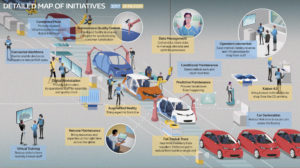 The goal
The goal
The goal of digitisation is to improve agility and responsiveness at strategic points in the process: tracking components for maintenance, managing consumption (raw materials, energy, etc.) and ensuring traceability of parts right to end users. It covers all areas of the plant.
Creating Industry 4.0
Sharing best practices among plants in real time creates an Industry 4.0 production system characterised by sharing and collective competencies. Renault’s plant of the future is collaborative and open to its ecosystem, from suppliers to partners.
The new tools promote closeness to customers and further improve quality control to move from mass production to individual personalised vehicles.
Pilot plants
Each plant is free to test innovations, or “technology bricks.” Once there is proof of the concept, the innovation goes into the catalogue and Renault deployed it across its plants. Renault also leans on designated pilot plants, notably Cléon in France, Valladolid in Spain and Curitiba in Brazil.
These plants test innovations on a wider scale for subsequent deployment at other sites, building a performance foundation gradually rolled out everywhere.
“We think the human is the centre of plant of the future” – Renault Global EVP supply chain Jose Vicente de los Mozos in Vallodolid Spain pic.twitter.com/BFTHIiSo9e
— just-auto.com (@justauto) September 27, 2017





